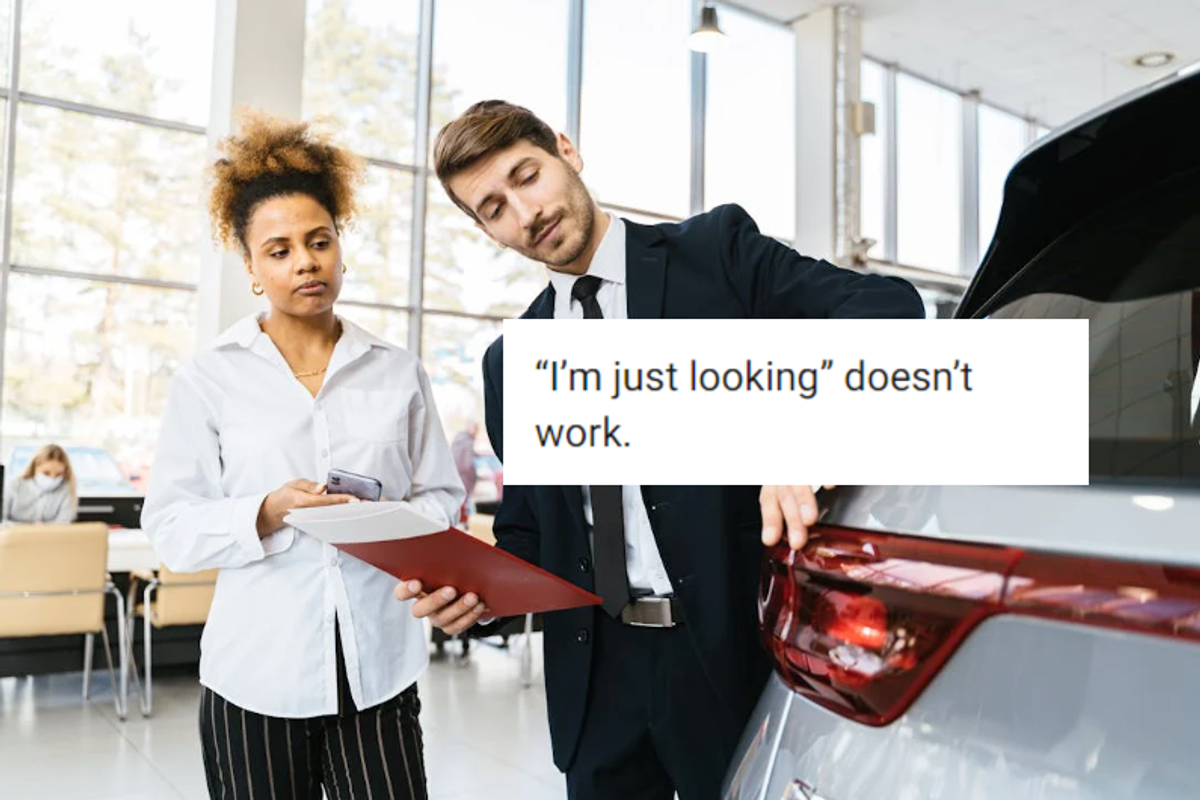Australian in the U.S. says she thinks it's rude that Americans don't say 'You're welcome'
Who's being more polite?

An Australian woman thinks it's rude that Americans don't say, "You're welcome."
There’s been a growing trend amongst American Gen Zers and millennials to stop saying, “You're welcome,” after being thanked. Older generations may think the change is part of a more significant trend of younger people having more lax manners, but in actuality, younger people believe that giving a simple “OK” or “Mm-hmm” after being thanked is more polite than saying, “You're welcome.”
Recently, Australian TikTok user Tilly Hokianga vented her frustrations with Americans in a viral post entitled, “Things That Send Me as an Australian Living in the US.” A lot of the points she made were pretty typical for someone visiting the United States, such as there's too much sugar in the bread and too many options for cereal.
However, she also noted that Americans have difficulty saying, “You’re welcome.”
"I don't understand. Talking to an American, you say, 'Thank you,' and they're always just like, 'Mm-hmm,” Hokianga said in the post. "I just said, 'Thank you.' You should say, 'You're welcome,' or 'It's all good,' or 'No worries,' not f**king 'Mm-hmm.'"
The post resonated with many people, racking up 3.8 million views and leading to a series of videos where she talks about other things that “send her” in America.

Tilly Hokianga explains what she doesn't understand about Americans.
The post caught the attention of Millie (@rosegoldmillie), an American who has spent time in Australia who thinks she isn’t being rude when she doesn’t say, “You’re welcome.” Instead, she believes that on a deeper level, people should always look out for one another, so thank yous aren’t necessary.
Warning: Strong language.
@rosegoldmillie #stitch with @tilly_hokianga #american #australian #british #manners #differences #travelling #overseas #fypfypfyp
She has a good point. You thank someone for going out of their way. If you believe that humans should always be helpful to one another, why acknowledge the act? Not everything has to be transactional.
"Someone would say, 'Thank you,' and I would say, 'Yep! Oh, uh, I mean, 'You're welcome!'" Millie said in her post. "Because to me, it's kind of rude. Like, it's not rude, but saying, 'Yep' and 'Sure' is the equivalent to saying, 'No problem,' and that is more polite in America than saying, 'You're welcome.'"
"When you say, 'You're welcome,' there's an implication in our brains that says, 'I did you a favor, and I deserve a thank you.' But when we say, 'Mm-hmm,' or like, 'Sure,' it's this implication of 'Of course, I would do that for you,'" she continued. "I don't deserve a thank you, like, it was the least I could do."
The response video received over 2.2 million views, and many people agreed with her.
“I remember switching from ‘you're welcome’ to ‘sure’ to ‘yeah’ for this reason,” Kelli Crockett wrote in the comments. “‘You're welcome’ is usually used sarcastically here. I think that's also part of why it feels rude like you're welcome is what you say when you're [mad emoji],” BeevesofTime added.
“OK, this is the opposite of what I think and was taught, but explains why I hear it,” FlyGal responded.
- Australia is banning entry to anyone found guilty of domestic violence anywhere in the world ›
- Americans' short-sighted focus on 'personal liberty' ended up limiting another type of freedom ›
- Australians have some wonderfully Aussie thoughts about the American minimum wage ›
- Why young Americans don't say 'you're welcome' - Upworthy ›






 A woman is getting angry at her coworker.via
A woman is getting angry at her coworker.via  A man with tape over his mouth.via
A man with tape over his mouth.via  A husband is angry with his wife. via
A husband is angry with his wife. via 
 Car salesmen have the worst reputation of all. Photo by
Car salesmen have the worst reputation of all. Photo by  Some very strong-willed people have been talked into buying a new car they weren't ready for. Photo by
Some very strong-willed people have been talked into buying a new car they weren't ready for. Photo by 
 Mom hugging crying daughter
Mom hugging crying daughter Dad kissing child on cheek
Dad kissing child on cheek Mom comforting daughter
Mom comforting daughter
 Working the polls or assisting with elections is a great side hustle.
Working the polls or assisting with elections is a great side hustle.